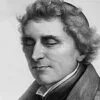Rank without merit earns deference without respect.
[L’importance sans mérite obtient des égards sans estime.]
Nicolas Chamfort (1741-1794) French writer, epigrammist (b. Nicolas-Sébastien Roch)
Products of Perfected Civilization [Produits de la Civilisation Perfectionée], Part 1 “Maxims and Thoughts [Maximes et Pensées],” ch. 1, ¶ 60 (1795) [tr. Merwin (1969)]
(Source)
(Source (French)). Alternate translations:Eminence without merit earns deference without esteem.
[tr. Mathers (1926)]Being important without merit attracts consideration without esteem.
[tr. Siniscalchi (1994)]
Quotations about:
nobility
Note not all quotations have been tagged, so Search may find additional quotes on this topic.
In a valiant suffering for others, not in a slothful making others suffer for us, did nobleness ever lie.
Thomas Carlyle (1795-1881) Scottish essayist and historian
Past and Present, Book 2, ch. 8 “Unworking Aristocracy” (1843)
(Source)
If ’tis a happiness to be nobly Descended, ’tis no less to have so much Merit, that our Birth is the least thing considered in us.
[S’il est heureux d’avoir de la naissance, il ne l’est pas moins d’être tel qu’on ne s’informe plus si vous en avez.]
Jean de La Bruyère (1645-1696) French essayist, moralist
The Characters [Les Caractères], ch. 2 “Of Personal Merit [Du Mérite Personnel],” § 21 (2.21) (1688) [Bullord ed. (1696)]
(Source)
(Source (French)). Alternate translations:If 'tis a Happiness to be nobly descended, 'tis no less to have so much Merit, that no body inquires whether we are so or no.
[Curll ed. (1713)]If it is a Happiness to be nobly Descended it is not a less to have so much Merit, that no body enquires whether we are so or no.
[Browne ed. (1752)]If it be a happiness to be of noble parentage, it is no less so to possess so much merit that nobody inquires whether we are noble or plebeian.
[tr. Van Laun (1885)]A well-born man is fortunate, but so is the man about whom people no longer ask, is he well-born?
[tr. Stewart (1970)]
To discern faults, though they be in fashion: Though Vice be clothed in cloth of gold, yet a good man will still know it. It is to no purpose for it to be apparelled in gold, it can never so well disguise it self but that it will be perceived to be of iron. It would cloak it self with the nobility of its Adherents, but it is never stript of its baseness, nor the misery of its slavery.
[Conocer los defectos, por más autorizados que estén. No desconozca la entereza el vicio, aunque se revista de brocado; corónase tal vez de oro, pero no por eso puede disimular el yerro. No pierde la esclavitud de su vileza aunque se desmienta con la nobleza del sujeto.]
Baltasar Gracián y Morales (1601-1658) Spanish Jesuit priest, writer, philosopher
The Art of Worldly Wisdom [Oráculo Manual y Arte de Prudencia], § 186 (1647) [Flesher ed. (1685)]
(Source)
(Source (Spanish)). Alternate translations:Recognise Faults, however high placed. Integrity cannot mistake vice even when clothed in brocade or perchance crowned with gold, but will not be able to hide its character for all that. Slavery does not lose its vileness, however it vaunt the nobility of its lord and master.
[tr. Jacobs (1892)]Know what is evil, however much worshiped it may be. Let the man of intelligence not fail to recognize it, even if clothed in brocade, or crowned with gold, because it cannot thereby hide its bane, -- slavery does not lose its infamy, however noble the master.
[tr. Fischer (1937)]Know when something is a defect, even if it looks like the opposite. Honesty should be able to recognize vice even when it dresses in brocade. Sometimes it wears a crown of gold, but even then it cannot hide its iron. Slavery is just as vile when disguised by high position.
[tr. Maurer (1992)]
The nobility, say nobles, serves as intermediary between king and people. True, just as the hound serves as intermediary between hunter and hares.
[«La noblesse, disent les nobles, est une intermédiaire entre le roi et le peuple…» Oui, comme le chien de chasse est un intermédiaire entre le chasseur et les lièvres.]Nicolas Chamfort (1741-1794) French writer, epigrammist (b. Nicolas-Sébastien Roch)
Products of Perfected Civilization [Produits de la Civilisation Perfectionée], Part 1 “Maxims and Thoughts [Maximes et Pensées],” ch. 8, ¶ 511 (1795) [tr. Dusinberre (1992)]
(Source)
(Source (French)). Alternate translations:The nobility, say the nobles, is an intermediary between the king and the people.... Precisely; just as the hound is the intermediary between the huntsman and the hares.
[tr. Hutchinson (1902)]The Nobility, its members say, is an intermediary between the King and the People. .... Exactly, just as hounds are intermediary between men and hares.
[tr. Mathers (1926), ¶ 512]“The nobility,” say the nobles, “is an intermediary between the king and the people . . .” No doubt: just as the hunting dog is an intermediary between the hunter and the hares.
[tr. Merwin (1969)]"The nobility," say the nobles, "is a go-between twixt the king and the people ..." Yes, just as the hunting dog is the go-between twixt the huntsman and the hares.
[tr. Pearson (1973)]"The nobility", say the nobles, "is an intermediary between the king and the people ..." Yes, like a hunting dog is an intermediary between a hunter and hares.
[tr. Siniscalchi (1994), ¶ 511]"We're the intermediary between the king and his subjects," claim the nobility. Yes indeed -- and the hound is the intermediary between the hunter and the hare.
[tr. Parmée (2003), ¶ 269]
Whence had you this illustrious name?
From virtue and unblemish’d fame.
By birth the name alone descends;
Your honour on yourself depends:
Think not your coronet can hide
Assuming ignorance and pride.
Learning by study must be won,
‘Twas ne’er entail’d from son to son.John Gay (1685-1732) English poet and playwright
“The Pack-Horse and Carrier (To a young Nobleman),” ll. 41-42
(Source)
Some printings of the poem leave off the prologue, of which this is a part.
At court, far from regarding ambition as a sin, people regard it as a virtue, or if it passes for a vice, then it is regarded as the vice of great souls, and the vices of great souls are preferred to the virtues of the simple and the small.
[A la cour, bien loin de faire un crime de l’ambition, on s’en fait une vertue; ou si elle y passe pour un vice, du reste on la regarde comme le vice des grandes âmes, et l’on aime mieux les vices des grandes âmes que les vertus des simples et des petits.]
Louis Bourdaloue (1632-1704) French Jesuit priest, preacher
Quoted in Bernart Gorethuysen, The Bourgeois: Catholicism vs. Capitalism in Eighteenth-Century France (1927) [tr. Ilford (1968)]
(Source)
The gentleman admires rightness above all. A gentleman who possessed courage but lacked a sense of rightness would create political disorder, while a common person who possessed courage but lacked a sense of rightness would become a bandit.
[君子義以爲上、君子有勇而無義、爲亂、小人有勇而無義、爲盜]
[君子义以为上君子有勇而无义为乱小人有勇而无义为盗]Confucius (c. 551- c. 479 BC) Chinese philosopher, sage, politician [孔夫子 (Kǒng Fūzǐ, K'ung Fu-tzu, K'ung Fu Tse), 孔子 (Kǒngzǐ, Chungni), 孔丘 (Kǒng Qiū, K'ung Ch'iu)]
The Analects [論語, 论语, Lúnyǔ], Book 17, verse 23 (17.23) (6th C. BC – AD 3rd C.) [tr. Slingerland (2003)]
(Source)
When asked if a gentleman (junzi) values valor. Annping Chin's notes suggest that the two uses of junzi are different: the first, speaking in general of a moral person, the second of a person of high status (vs the person of low status, xiaoren) following).
(Source (Chinese) 1, 2). Alternate translations:The superior man holds righteousness to be of highest importance. A man in a superior situation, having valour without righteousness, will be guilty of insubordination; one of the lower people having valour without righteousness, will commit robbery.
[tr. Legge (1861)]Righteousness he counts higher. A gentleman who is brave without being just may become turbulent; while a common person who is brave and not just may end in becoming a highwayman.
[tr. Jennings (1895)]A gentleman esteems what is right as of the highest importance. A gentleman who has valour, but is without a knowledge and love of what is right, is likely to commit a crime. A man of the people who has courage, but is without the knowledge and love of what is right, is likely to become a robber.
[tr. Ku Hung-Ming (1898)]Men of the superior class deem rectitude the highest thing. It is men of the superior class, with courage but without rectitude, who rebel. It is men of the lower class, with courage but without rectitude, who become robbers.
[tr. Soothill (1910)]The proper man puts equity at the top, if a gentleman have courage without equity it will make a mess; if a mean man have courage without equity he will steal.
[tr. Pound (1933)]A gentleman gives the first place to Right. If a gentleman has courage but neglects Right, he becomes turbulent. If a small man has courage but neglects Right, he becomes a thief.
[tr. Waley (1938)]The perfect gentleman is given to justice and assigns to it first place. If the perfect gentleman possesses courage but not justice, there will be disorders. In the case of the mean man, there will be burglaries.
[tr. Ware (1950), 17.21]For the gentleman it is morality that is supreme. Possessed of courage but devoid of morality, a gentleman will make trouble while a small man will be a brigand.
[tr. Lau (1979)]Rightness the gentleman regards as paramount; for if a gentleman has courage but lacks a sense of right and wrong, he will cause political chaos; and if a small man has courage but lacks a sense of right and wrong, he will commit burglary.
[tr. Dawson (1993), 17.21]A gentleman puts justice above everything. A gentleman who is brave but not just may become a rebel; a vulgar man who is brave but not just may become a bandit.
[tr. Leys (1997)]
The gentleman regards righteousness as supreme. A gentleman who possesses courage but wants righteousness will become rebel; a small man who possesses courage but wants righteousness will become a bandit. [tr. Huang (1997), 17.22]A gentleman stresses the righteousness as a top rule. If a gentleman has the braveness but no righteousness, will be disordered. If a mean person has the braveness but no righteousness, will be a robber.
[tr. Cai/Yu (1998), No. 463]In fact, the exemplary person gives first priority to appropriate conduct (yi). An exemplary person who is bold yet is lacking a sense of appropriateness will be unruly, while a petty person of the same cut will be a thief.
[tr. Ames/Rosemont (1998)]With the gentleman, right comes before all else. If a gentleman has courage but lacks a sense of right, he will make a rebellion. If a little man has courage but lacks a sense of right, he will become a thief.
[tr. Brooks/Brooks (1998), 17:21]The noble-minded honor Duty above all. In the noble-minded, courage without Duty leads to turmoil. In little people, courage without Duty leads to theft and robbery.
[tr. Hinton (1998), 17.22]The gentleman holds rightness in highest esteem. A gentleman who possesses courage but lacks rightness will become rebellious. A petty man who possesses courage but lacks rightness will turn to thievery.
[tr. Watson (2007)]The gentleman (junzi) puts rightness at the top. If a man of high status (junzi) has courage but not a sense of rightness, he will create political upheaval. If a lowly man has courage but not a sense of rightness, he will turn to banditry.
[tr. Annping Chin (2014)]A Jun Zi's top objective is righteousness. If a Jun Zi has valor but acts against righteousness, he is prone to make trouble. If a Xiao Ren has valor but acts against righteousness, he is prone to commit crimes.
[tr. Li (2020)]
The superior man in everything considers righteousness to be essential. He performs it according to the rules of propriety. He brings it forth in humility. He completes it with sincerity. This is indeed a superior man.
[君子義以為質,禮以行之,孫以出之,信以成之,君子哉]
Confucius (c. 551- c. 479 BC) Chinese philosopher, sage, politician [孔夫子 (Kǒng Fūzǐ, K'ung Fu-tzu, K'ung Fu Tse), 孔子 (Kǒngzǐ, Chungni), 孔丘 (Kǒng Qiū, K'ung Ch'iu)]
The Analects [論語, 论语, Lúnyǔ], Book 15, verse 18 (15.18) (6th C. BC – 3rd C. AD) [tr. Legge (1861), 15.17]
(Source)
(Source (Chinese)). Alternate translations, noting where Legge's numbering is used:When the "superior man" regards righteousness as the thing material, gives operation to it according to the rules of propriety, lets it issue in humility, and become complete in sincerity, -- there indeed is your superior man!
[tr. Jennings (1895), 15.17]A wise and good man makes Right the substance of his being; he cries it out with judgment and good sense; he speaks it with modesty; and he attains it with sincerity: -- such a man is a really good and wise man!
[tr. Ku Hung-Ming (1898), 15.17]The noble man takes the Right as his foundation principle, reduces it to practice with all courtesy, carries it out with modesty, and renders it perfect with sincerity, -- such is the noble man.
[tr. Soothill (1910), 15.17]When a princely man makes the Right his fundamental principle, makes Courtesy his rule in evolving it, Modesty his rule for exhibiting it, and Sincerity his rule for effectuating it perfectly, -- what a princely man he is!
[tr. Soothill (1910), 15.17, alternate]The proper man gives substance to his acts by equity. He proceeds according to the rites, puts them forth modestly, and makes them perfect by sticking to his word. That's the proper man (in whom's the voice of his forebears).
[tr. Pound (1933), 15.17]The gentleman who takes the right as his material to work upon and ritual as the guide in putting what is right into practice, who is modest in setting out his projects and faithful in carrying them to their conclusions, he indeed is a true gentleman.
[tr. Waley (1938), 15.17]He whose very substance is justice; whose actions are governed by the rites; whose participation in affairs is compliant; and whose crowning perfection is truthfulness -- that man is a perfect gentleman.
[tr. Ware (1950)]The gentleman has morality as his basic stuff and by observing the rites puts it into practice, by being modest gives it expression, and by being trustworthy in word brings it to completion. Such is a gentleman indeed!
[tr. Lau (1979)]Righteousness the gentleman regards as the essential stuff and the rites are his means of putting it into effect. If modesty is the quality with which he reveals it and good faith is his method of bringing it to completion, he is indeed a gentleman.
[tr. Dawson (1993)]A gentleman takes justice as his basis, enacts it in conformity with the ritual, expounds it with modesty, and through good faith, brings it to fruition. That is how a gentleman proceeds.
[tr. Leys (1997)]A gentleman considers righteousness his major principle; he practices it in accordance with the rituals, utters it in modest terms, and fulfils it with truthfulness. A gentleman indeed!
[tr. Huang (1997)]A gentleman takes the righteousness as his essence, practices with the rituals, words with modesty, and gets achievement with honesty. It is the gentleman.
[tr. Cai/Yu (1998), v. 402]Having a sense of appropriate conduct [yi] as one's basic disposition [zhi], developing it in observing ritual propriety [li], expressing it with modesty, and consummating it in making good on one's word [xin]; this then is an exemplary person [junzi].
[tr. Ames/Rosemont (1998)]If a gentleman has right as his substance, and puts it in practice with propriety, promulgates it with lineality, and brings it to a conclusion with fidelity, he is a gentleman indeed!
[tr. Brooks/Brooks (1998), LY17 c0270 addition]The noble-minded make Duty their very nature. They put it into practice through Ritual; they make it shine through humility; and standing by their words, they perfect it. Then they are noble-minded indeed!
[tr. Hinton (1998)]The gentleman takes rightness as his substance, puts it into practice by means of ritual, gives it expression through modesty, and perfects it by being trustworthy. Now that is a gentleman!
[tr. Slingerland (2003)]The gentleman makes rightness the substance, practices it through ritual, displays it with humility, brings it to completion with trustworthiness. That’s the gentleman.
[tr. Watson (2007)]The gentleman makes rightness the substance. He works at it through ritual propriety; he expresses it with modesty; he brings it to completion by being trustworthy. Now that is a gentleman!
[tr. Annping Chin (2014)]A Jun Zi regards righteousness and honor as fundamental bases, acts in line with Li, shows humility, delivers promises, and completes contracts with sincerity and trust. If so, he is indeed a Jun Zi.
[tr. Li (2020)]A leader takes rightness as their essence, puts it into practice through ritual, manifests it through humility, and brings it to fruition through trustworthiness. This is how a leader behaves.
[tr. Brown (2021)]
Remember that there is nothing noble in being superior to some other man. The true nobility is in being superior to your previous self.
W. L. Sheldon (1858-1907) American lecturer, ethicist [Walter Lorenzo Sheldon]
“What to Believe: An Ethical Creed,” Ethical Addresses (Apr 1897)
(Source)
Often incorrectly attributed to Hemingway. More discussion: There Is Nothing Noble in Being Superior to Some Other Man. The True Nobility Is in Being Superior to Your Previous Self – Quote Investigator.
THE LADY: Shepherd I take thy word,
And trust thy honest offer’d courtesie,
Which oft is sooner found in lowly sheds
With smoaky rafters, then in tapstry Halls
And Courts of Princes, where it first was nam’d,
And yet is most pretended.
For the old notions of civil liberty and social order did not benefit the masses of the people. Wealth increased, without relieving their wants. The progress of knowledge left them in abject ignorance. Religion flourished, but failed to reach them. Society, whose laws were made by the upper class alone, announced that the best thing for the poor is not to be born, and the next best, to die in childhood, and suffered them to live in misery and crime and pain. As surely as the long reign of the rich has been employed in promoting the accumulation of wealth, the advent of the poor to power will be followed by schemes for diffusing it. Seeing how little was done by the wisdom of former times for education and public health, for insurance, association, and savings, for the protection of labour against the law of self-interest, and how much has been accomplished in this generation, there is reason in the fixed belief that a great change was needed, and that democracy has not striven in vain.
John Dalberg, Lord Acton (1834-1902) British historian, politician, writer
“Review of Sir Erskine May’s Democracy in Europe,” The Quarterly Review (1878-01)
(Source)
Anyone who doesn’t realize that, whether for their attenders or their conductors, colleges and universities are the current equivalent of salons and levees and courts should look harder. If no other institution here confers the titles of nobility forbidden by the Constitution, they do. Or something very much like it.
The same distinction marks off Tragedy from Comedy; for Comedy aims at representing men as worse, Tragedy as better than in actual life.
[ἐν αὐτῇ δὲ τῇ διαφορᾷ καὶ ἡ τραγῳδία πρὸς τὴν κωμῳδίαν διέστηκεν: ἡ μὲν γὰρ χείρους ἡ δὲ βελτίους μιμεῖσθαι βούλεται τῶν νῦν.]
Aristotle (384-322 BC) Greek philosopher
Poetics [Περὶ ποιητικῆς, De Poetica], ch. 2, sec. 4 / 1448a (c. 335 BC) [tr. Butcher (1895)]
(Source)
Original Greek. Alternate translations:This difference it is that distinguishes Tragedy and Comedy also; the one would make its personages worse, and the other better, than the men of the present day.
[tr. Bywater (1909)]Tragedy and Comedy are at the Poles: for the former means to portray a superior, the latter an inferior being to modern man.
[tr. Margoliouth (1911)]It is just in this respect that tragedy differs from comedy. The latter sets out to represent people as worse than they are to-day, the former as better.
[tr. Fyfe (1932)]Tragedy too is distinguished from comedy by precisely this difference; comedy prefers to represent people who are worse than those who exist, tragedy people who are better.
[tr. Janko (1987), 1.3]And tragedy stands in the same relation of difference to comedy; for the one tends to take as subjects men worse than the general run, and the other takes men better than we are.
[tr. Whalley (1997)]And by this very difference tragedy stands apart in relation to comedy, for the latter intends to imitate those who are worse, and the former better, than people are now.
[tr. Sachs (2006)]The very same difference makes the distinction between tragedy and comedy: the latter aims to represent people as worse, and the former as better, than people nowadays are.
[tr. Kenny (2013)]
One must not always think so much about what one should do, but rather what one should be. Our works do not ennoble us; but we must ennoble our works.
Meister Eckhart (c. 1260-1328?) German theologian, philosopher, mystic [a.k.a. Johannes Eckhart von Hochheim; Eckhart; Eckehart]
Work and Being (14th C.)
Note: I haven't found a text by that name in Eckhart's bibliography, nor this quotation anywhere connected with anything but that title or none at all.
The brain is only three pounds of blood, dream, and electricity, and yet from that mortal stew come Beethoven’s sonatas. Dizzy Gillespie’s jazz. Audrey Hepburn’s wish to spend the last month of her life in Somalia, saving children.
Diane Ackerman (b. 1948) American poet, author, naturalist
A Natural History of Love, “Brain-Stem Sonata: The Neurophysiology of Love” (1994)
(Source)
PHILINTE: A gentleman may be respected still,
Whether he writes a sonnet well or ill.
That I dislike his verse should not offend him;
In all that touches honor, I commend him;
He’s noble, brave, and virtuous — but I fear
He can’t in truth be called a sonneteer.On peut être honnête homme, et faire mal des vers,
Ce n’est point à l’honneur que touchent ces matières,
Je le tiens galant homme en toutes les manières,
Homme de qualité, de mérite et de cœur,
Tout ce qu’il vous plaira, mais fort méchant auteur.Molière (1622-1673) French playwright, actor [stage name for Jean-Baptiste Poquelin]
Le Misanthrope, Act 4, sc. 1 (1666) [tr. Wilbur (1954)]
(Source)
(Source (French)). Alternate translations:One may be a perfect gentleman, and write bad verses; those things have nothing to do with honour. I take him to be a gallant man in every way; a man of standing, of merit, and courage, anything you like, but he is a wretched author.
[tr. Van Laun (1878)]One may be an excellent man, and yet write bad verses. Honour is not affected by such things. I esteem him a gallant man in all respects, a man of quality, merit, and courage; all you please, but he is a very bad author.
[tr. Mathew (1890)]A man can be a gentleman and make bad verses. Such matters do not touch his honor, and I hold him to be a gallant man in every other way; a man of quality, of courage, deserving of anything you please, but -- a bad writer.
[tr. Wormeley (1894)]One may be a perfect gentleman and yet write bad verses; these things have no concern with honolur. I believe him to be an honourable man in every way; a man of standing, of merit, of courage, anything you like, but he is a miserable author.
[tr. Waller (1903)]A man may be
A perfect gentleman, and write poor verse.
These matters do not raise the point of honor.
I hold him a true man in all respects,
Brave, worthy, noble, anything you will,
But still, a wretched writer.
[tr. Page (1913)]One can be virtuous and a wretched poet;
That's not a matter to affect one's honor.
I think him an accomplished gentleman,
A man of rank, merit, and character,
Whatever you like; but he's a dreadful author.
[tr. Bishop (1957)]Even a gentleman can write bad verse.
These things concern our honor not a whit.
That he's a gentleman I do admit,
A man of quality, merit, and heart,
All that you like -- his authorship apart.
[tr. Frame (1967)]Anyone may be an honorable man, and yet write verse badly.
[ed. Bartlett (1992)]
Do not only look
For gentlefolk in castles: everywhere,
In humble dwellings and in haylofts, too,
The hearts of men are often kind and true.[Che non pur per cittadi e per castella,
Ma per tuguri ancora e per fenili
Spesso si trovan gli uomini gentili.]Ludovico Ariosto (1474-1533) Italian poet
Orlando Furioso, Canto 14, st. 62 (1532) [tr. Reynolds (1973)]
(Source)
Alt. trans.: "For not alone dwells Hospitality / In court and city; but ofttimes we find / In loft and cottage men of gentle kind." [tr. Rose (1831)]
For we hold that the man who is truly good and wise will bear with dignity whatever fortune sends, and will always make the best of his circumstances, as a good general will turn the forces at his command to the best account, and a good shoemaker will make the best shoe that can be made out of a given piece of leather, and so on with all other crafts.
[τὸν γὰρ ὡς ἀληθῶς ἀγαθὸν καὶ ἔμφρονα πάσας οἰόμεθα τὰς τύχας εὐσχημόνως φέρειν καὶ ἐκ τῶν ὑπαρχόντων ἀεὶ τὰ κάλλιστα πράττειν, καθάπερ καὶ στρατηγὸν ἀγαθὸν τῷ παρόντι στρατοπέδῳ χρῆσθαι πολεμικώτατα καὶ σκυτοτόμον ἐκ τῶν δοθέντων σκυτῶν κάλλιστον ὑπόδημα ποιεῖν: τὸν αὐτὸν δὲ τρόπον καὶ τοὺς ἄλλους τεχνίτας ἅπαντας.]
Aristotle (384-322 BC) Greek philosopher
Nicomachean Ethics [Ἠθικὰ Νικομάχεια], Book 1, ch. 10, sec. 13 (1.10.13) / 1101a.1-6 (c. 325 BC) [tr. Peters (1893)]
(Source)
(Source (Greek)). Alternate translations:For the man who is truly good and sensible bears all fortunes, we presume, becomingly, and always does what is noblest under the circumstances, just as a good general employs to the best advantage the force he has with him; or a good shoemaker makes the handsomest shoe he can out of the leather which has been given him; and all other good artisans likewise.
[tr. Chase (1847), ch. 8]For we hold that the really good and prudent man will bear all changes of fortune with good grace, and will always, as the case may allow, act most nobly; exactly as a good general will use such forces as are at his disposal most skilfully, and even as a good cobbler will, out of such leather as he may have, make the most perfect show; and of all those who practice any other art the same rule will hold good.
[tr. Williams (1869), sec. 17]For our conception of the truly good and sensible man is that he bears all the chances of life with decorum and always does what is noblest in the circumstances, as a good general uses the forces at his command to the best advantage in war, a good cobbler makes the best shoe with the leather that is given him, and so on through the whole series of the arts.
[tr. Welldon (1892)]For the man who is truly good and wise, we think, bears all the chances life becomingly and always makes the best of circumstances, as a good general makes the best military use of the army at his command and a good shoemaker makes the best shoes out of the hides that are given him; and so with all other craftsmen.
[tr. Ross (1908)]We hold that the truly good and wise man will bear all kinds of fortune in a seemly way, and will always act in the noblest manner that the circumstances allow; even as a good general makes the most effective use of the forces at his disposal, and a good shoemaker makes the finest shoe possible out of the leather supplied him, and so on with all the other crafts and professions.
[tr. Rackham (1934)]For a truly good and practically-wise person, we think, will bear what luck brings graciously, and, making use of the resources at hand, will always do the noblest actions, just as a good general makes the best uses in warfare of the army he has and a good shoemaker makes the best shoes out of the hides he has been given, and the same with all other craftsmen.
[tr. Reeve (1948)]For we hold that a truly good and sensible man will bear all fortunes of life with propriety and will always act most nobly under whatever the given circumstances may be, like a good general, who uses a given army most effectively, or a good shoemaker, who makes the best shoes out of a given leather, and likewise with any artist.
[tr. Apostle (1975)]For we believe that the truly good and wise man bears all his fortunes with dignity, and always takes the most honorable course that circumstances permit, just as a good general uses his available forces in the most militarily effective way, and a good shoemaker makes the neatest shoe out of the leather supplied to him, and the same with all the other kinds of craftsmen.
[tr. Thomson/Tredennick (1976)]For a truly good and intelligent person, we suppose, will bear strokes of fortune suitably, and from his resources at any time will do the finest action, just as a good general will make best use of his forces in war, and a good shoemaker will produce the finest shoe from the hides given him, and similarly for all other craftsmen.
[tr. Irwin/Fine (1995)]For the truly good and wise person, we believe, bears all the fortunes of life with dignity and always does the noblest thing in the circumstances, as a good general does the most strategically appropriate thing with the army at his disposal, and a shoemaker makes the noblest shoe out of the leather he is given, and so on with other practitioners of skills.
[tr. Crisp (2000)]For we suppose that someone who is truly good and sensible bears up under all fortunes in a becoming way and always does what is noblest given the circumstances, just as a good general makes use, with the greatest military skill, of the army he has and a shoemaker makes the most beautiful shoe out of the leather given him. It holds in the same manner with all the other experts as well.
[tr. Bartlett/Collins (2011)]
Nevertheless even here, when a man bears patiently a number of heavy disasters, not because he does not feel them but because he has a high and generous nature, his nobility shines through. And if, as we said, the quality of a life is determined by its activities, no man who is truly happy can become miserable; because he will never do things that are hateful and mean.
[ὅμως δὲ καὶ ἐν τούτοις διαλάμπει τὸ καλόν, ἐπειδὰν φέρῃ τις εὐκόλως πολλὰς καὶ μεγάλας ἀτυχίας, μὴ δι᾽ ἀναλγησίαν, ἀλλὰ γεννάδας ὢν καὶ μεγαλόψυχος. εἰ δ᾽ εἰσὶν αἱ ἐνέργειαι κύριαι τῆς ζωῆς, καθάπερ εἴπομεν, οὐδεὶς ἂν γένοιτο τῶν μακαρίων ἄθλιος: οὐδέποτε γὰρ πράξει τὰ μισητὰ καὶ τὰ φαῦλα.]
Aristotle (384-322 BC) Greek philosopher
Nicomachean Ethics [Ἠθικὰ Νικομάχεια], Book 1, ch. 11 (1.11) / 1100b.30-35 (c. 325 BC) [tr. Thomson/Tredennick (1976)]
(Source)
(Source (Greek))
Often highly paraphrased: "Suffering becomes beautiful when anyone bears great calamities with cheerfulness, not through insensibility but through greatness of mind."
Alternate translations:But nevertheless, even in these, nobility of the soul is conspicuous, when a man bears and digests many and great misfortunes, not from insensibility, but because he is high spirited and magnanimous. But if the energies are the things that constitute the bliss or the misery of life, as we said, no happy man can ever become miserable, for he will never do hateful and worthless actions.
[tr. Vincent (1835)]But still, even in these, nobleness shines through when a man bears contentedly many and great mischances not from insensibility to pain but because he is noble and high-spirited. And if, as we have said, the acts of working are what determine the character of the life, no one of the blessed can ever become wretched, because he will never do those things which are hateful and mean.
[tr. Chase (1847)]But nevertheless even here true nobility sines out, when a man bears calmly man and great mishaps, not through dullness of feeling, but from true high-breeding, and greatness of spirit. And since, as we have said, it is our own acts that determine our life, no one of the really blessed can ever become wretched, for he will never do hateful and disgraceful deeds.
[tr. Williams (1869), sec. 17]Still even in these circumstances nobility shines out, when a person bears the weight of accumulated misfortunes with calmness, not from insensibility but from innate dignity and magnanimity. But if it is the activities which determine the life, as we said, nobody who is fortunate can become miserable; for he will never do what is hateful and mean.
[tr. Welldon (1892)]But nevertheless true worth shines out even here, in the calm endurance of many great misfortunes, not through insensibility, but through nobility and greatness of soul. And if it is what a man does that determines the character of his life, as we said, then no happy man will become miserable; for he will never do what is hateful and base. [tr. Peters (1893), 1.10.13]Nevertheless even under these the force of nobility shines out, when a man bears calmly many great disasters, not from insensibility, but because he is generous and of a great soul. Setting happiness then, as we do, not in the outward surroundings of man, but in his inward state, we may fairly say that no one who has attained to the bliss of virtue will ever justly become an object of pity or contempt: for he will never do things that are hateful and vile.
[tr. Stock (1897)]Yet even in these nobility shines through, when a man bears with resignation many great misfortunes, not through insensibility to pain but through nobility and greatness of soul. If activities are, as we said, what gives life its character, no happy man can become miserable; for he will never do the acts that are hateful and mean.
[tr. Ross (1908), 1.10]Yet nevertheless even in adversity nobility shines through, when a man endures repeated and severe misfortune with patience, not owing to insensibility but from generosity and greatness of soul. And if, as we said, a man's life is determined by his activities, no supremely happy man can ever become miserable. For he will never do hateful or base actions.
[tr. Rackham (1934), 1.10.12-13]All the same, even in these cases nobility shines through when someone calmly bears repeated strokes of great bad luck -- not because he is insensitive to suffering but because of being well bred and great-souled. And if it is activities that control living, as we said, no blessed person will ever become wretched, since he will never do hateful or base actions.
[tr. Reeve (1948)]The beauty of the soul shines out when a man bears with composure one heavy mischance after another, not because he does not feel them, but because he is a man of high and heroic temper. Besides, if it be true, as I affirmed, that the quality of life is determined by its activities, it is impossible for the entirely happy man to become miserable. For he will never be guilty of base or detestable actions.
[tr. Thomson (1953)]Yet nobility shines out even there, when a man bears many and great misfortunes with calm and ease, not through insensibility to pain, but through nobility of character and highmindedness. Thus if it is the activities that play a dominant role in life, as we have said, no blessed man can become wretched; for he will never do what is hateful or bad.
[tr. Apostle (1975)]And yet, even here, what is fine shines through, whenever someone bears many severe misfortunes with good temper, not because he feels no distress, but because he is noble and magnanimous. And since it is activities that control life, as we said, no blessed person could ever become miserable, since he will never do hateful and base actions.
[tr. Irwin/Fine (1995)]What is noble shines through, when a person calmly bears many great misfortunes, not through insensibility, but by being well bred and great-souled. If activities are, as we have said, what really matter in life, no one blessed could become wretched, since he will never do hateful and petty actions.
[tr. Crisp (2000)]Nevertheless, even in the midst of these, nobility shines through, whenever someone bears up calmly under many great misfortunes, not because of any insensitivity to pain but because he is wellbore and great souled. And if the activities have authoritative control over life, just as we said, then no one who is blessed would become wretched, since he will never do things that are hateful and base.
[tr. Bartlett/Collins (2011)]Still, nobility shines bright even in tough times, when someone bears even many severe misfortunes patiently, not because they cannot sense them, but because of their unselfishness and greatness of spirit. If the actions one takes rules their life -- as we just said -- then none of the happy people can ever be miserable.
[tr. @sentantiq (2020)]But all the same, even in these instances, nobility shines through whenever someone good-naturedly bears a multitude of great misfortunes, and does so not because he's numb to pain, but because he's noble and great-souled.
[tr. Benn (2021)]
There’s nothing noble about dying. Not even if you die for honor. Not even if you die the greatest hero the world ever saw. Not even if you’re so great your name will never be forgotten and who’s that great? The most important thing is your life, little guys. You’re worth nothing dead except for speeches. Don’t let them kid you any more. Pay no attention when they tap you on the shoulder and say come along we’ve got to fight for liberty, or whatever their word is. There’s always a word.
Dalton Trumbo (1905-1976) American screenwriter and novelist [James Dalton Trumbo]
Johnny Got His Gun (1938)
(Source)
The man who has nothing to boast of but his illustrious ancestry, is somewhat like a potatoe, the only good thing is under ground.
Thomas Overbury (1581-1613) English poet
Characters (1612)
(Source)
Referenced in John Ireland, Letters and Poems by the Late Mr. John Henderson (1786).Variant: "The man who has not anything to boast of but his illustrious ancestors, is like a potatoe, the only good belonging to him is under ground." -- The Lady's Monthly Museum (June 1807).
But man is a Noble Animal, splendid in ashes, and pompous in the grave, solemnizing Nativities and Deaths with equall lustre, nor omitting Ceremonies of bravery, in the infamy of his nature.
Thomas Browne (1605-1682) English physician and author
Hydriotaphia, or Urne-Buriall, ch. 5 (1658)
(Source)
… a noble aim,
Faithfully kept, is as a noble deed,
In whose pure sight all virtue doth succeed.William Wordsworth (1770-1850) English poet
“Brave Schill! By Death Delivered, Take Thy Flight” (1809; pub. 1815)
(Source)
Sometimes misquoted "is a noble deed".
The ultimate test of man’s conscience may be his willingness to sacrifice something today for future generations whose words of thanks will not be heard.
Gaylord Nelson (1916-2005) American politician and environmentalist
“Ah, Wilderness! Save It,” New York Times (4 Sep 1984)
(Source)
The truest American president we have ever had, the companion of Washington in our love and honor, recognized that the poorest man, however outraged, however ignorant, however despised, however black, was, as a man, his equal. The child of the American people was their most prophetic man, because, whether as small shop-keeper, as flat-boatman, as volunteer captain, as honest lawyer, as defender of the Declaration, as President of the United States, he knew by the profoundest instinct and the widest experience and reflection, that in the most vital faith of this country it is just as honorable for an honest man to curry a horse and black a boot as it is to raise cotton or corn, to sell molasses or cloth, to practice medicine or law, to gamble in stocks or speculate in petroleum. He knew the European doctrine that the king makes the gentleman; but he believed with his whole soul the doctrine, the American doctrine, that worth makes the man.
George William Curtis (1824-1892) American essayist, editor, reformer, orator
“The Good Fight” (1865)
(Source)
LARGE MAN WITH DEAD BODY: Who’s that then?
THE DEAD COLLECTOR: I dunno, must be a king.
LARGE MAN WITH DEAD BODY: Why?
THE DEAD COLLECTOR: He hasn’t got shit all over him.
At the foundation of our civil liberty lies the principle which denies to government officials an exceptional position before the law and which subjects them to the same rules of conduct that are commands to the citizen.
Be noble! And the nobleness that lies
In other men, sleeping, but never dead,
Will rise in majesty to meet thine own.James Russell Lowell (1819-1891) American diplomat, essayist, poet
“Sonnet 4” (1840)
(Source)
Often presented as a simple sentence, rather than lines within a larger poem.
ULYSSES: O, when degree is shaked,
Which is the ladder of all high designs,
The enterprise is sick. How could communities,
Degrees in schools and brotherhoods in cities,
Peaceful commerce from dividable shores,
The primogeneity and due of birth,
Prerogative of age, crowns, scepters, laurels,
But by degree stand in authentic place?
Take but degree away, untune that string,
And hark what discord follows.William Shakespeare (1564-1616) English dramatist and poet
Troilus and Cressida, Act 1, sc. 3, l. 105ff (1.3.105-114) (1602)
(Source)
Certainly, in taking revenge, a man is but even with his enemy; but in passing it over, he is superior; for it is a prince’s part to pardon.
Francis Bacon (1561-1626) English philosopher, scientist, author, statesman
“Of Revenge,” Essays, No. 4 (1625)
(Source)
OLIVER: Kindness, nobler ever than revenge.
William Shakespeare (1564-1616) English dramatist and poet
As You Like It, Act 4, sc. 3, l. 135 (4.3.135) (1599)
(Source)

































